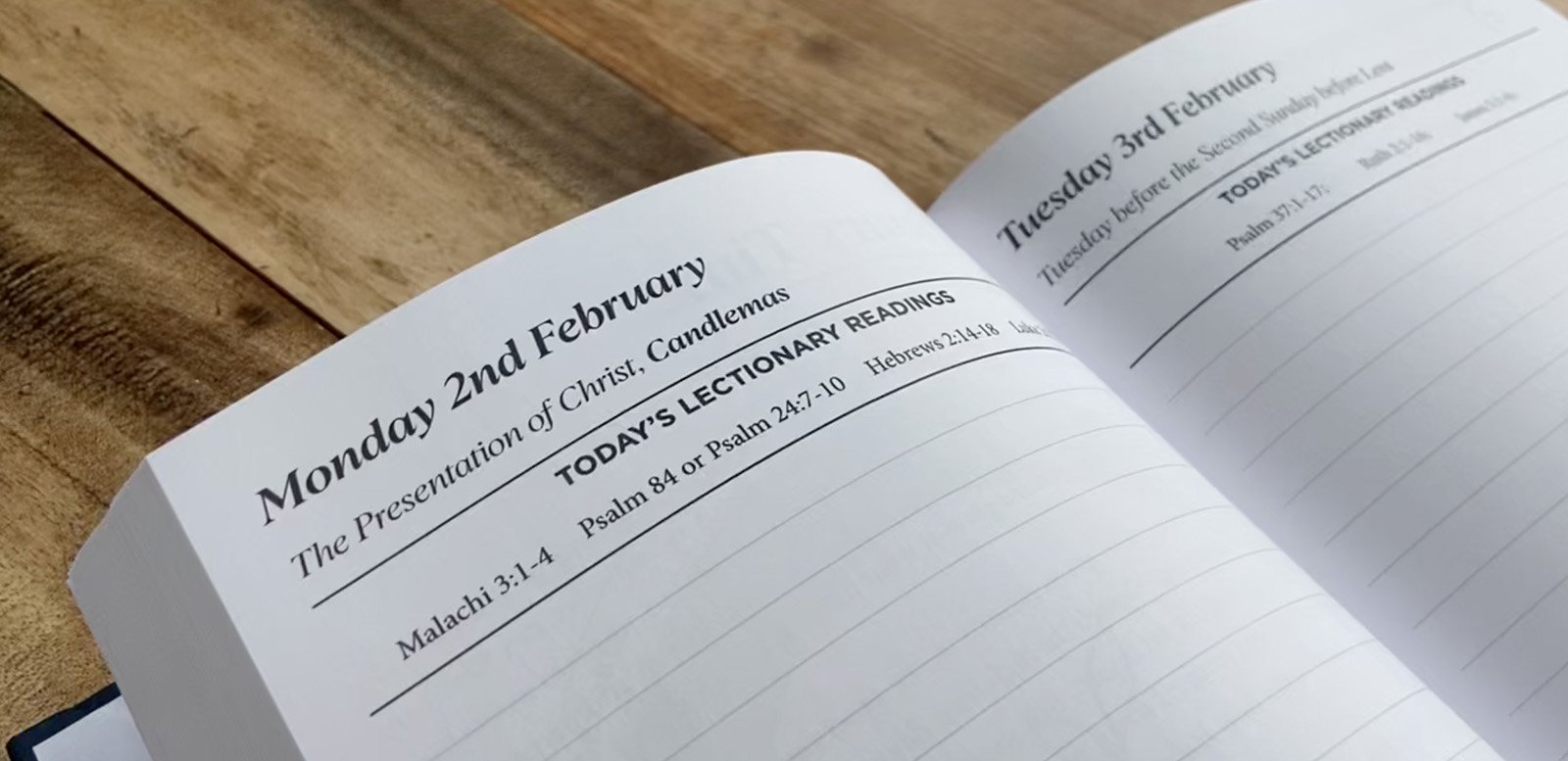The Lectionary

As we prepare to share with you the Ora et Labora journal for 2026, I want to offer you a small window into one of its daily features: the readings from the Revised Common Lectionary. Each day within the journal, you’ll find the Scripture passages appointed for that day.
The Revised Common Lectionary is not a recent invention, though its current form is relatively modern. It grew from centuries of Christian practice — rooted first in the ancient patterns of Scripture read aloud in the synagogue, taken up and shaped by the early Church, and passed through the liturgical life of Catholic, Orthodox, and Protestant traditions alike.
In the 20th century, churches across denominations began to seek unity in how the Scriptures were shared week by week. The ecumenical movement birthed a shared lectionary in 1983, and from that the Revised Common Lectionary emerged in 1992. It is used today by many communities across the world — Anglican, Lutheran, Methodist, Presbyterian, Reformed, and others — to ground their worship in the full counsel of Scripture.
Each day, the lectionary can offer us:
- a passage from the Hebrew Scriptures,
- a Psalm or canticle,
- an Epistle,
- and a Gospel reading.
These are arranged to accompany the Church’s seasons (something I’ll share more about in a future email). Thursday through Saturday readings help prepare the reader for the Sunday ahead; Monday through Wednesday readings help the reader reflect on and digest what they heard in worship.
In Ora et Labora, you will find these texts quietly waiting for you each day. They are not there however as assignments but instead as an invitation to read scripture with the people of God around the world and across denominations.
We look forward to sharing more soon. Until then, may you find in Scripture a quiet resting place.
The ‘Ora et Labora’ journal for the liturgical year 2025/2026 will be available on November 1st.

